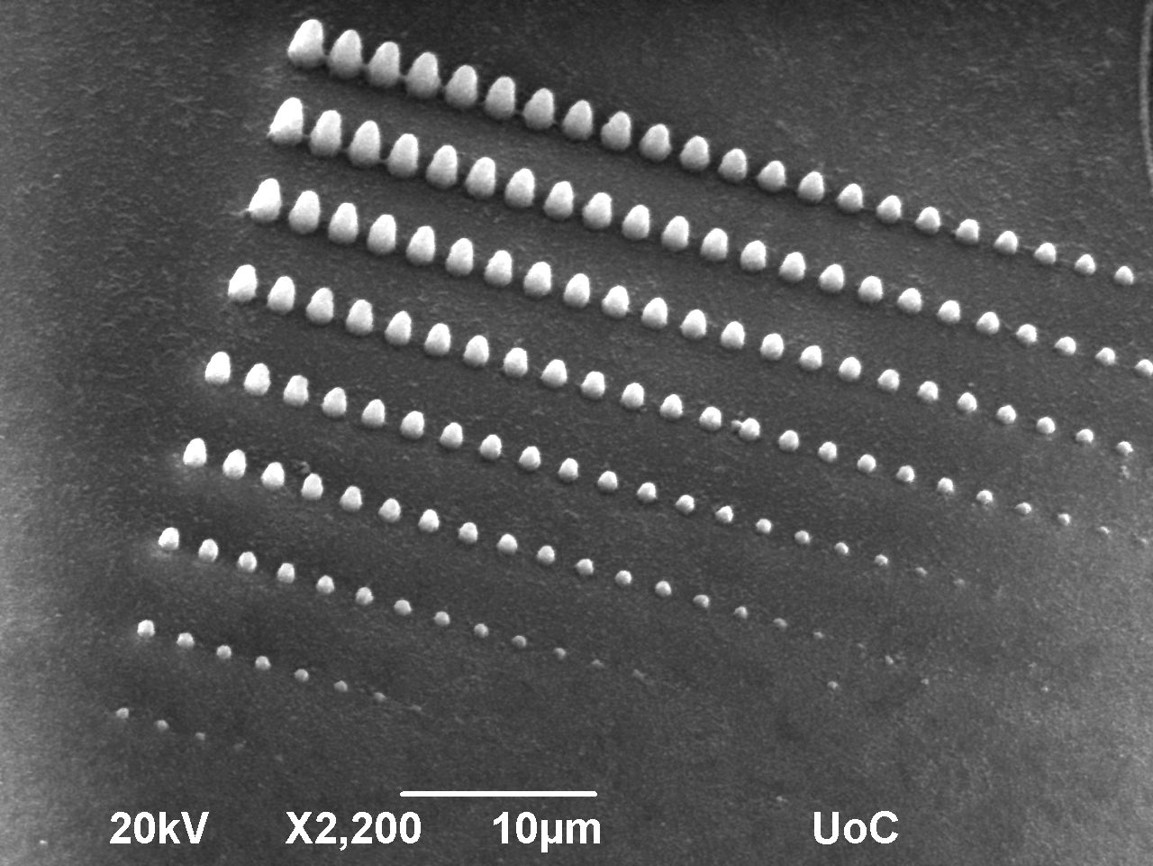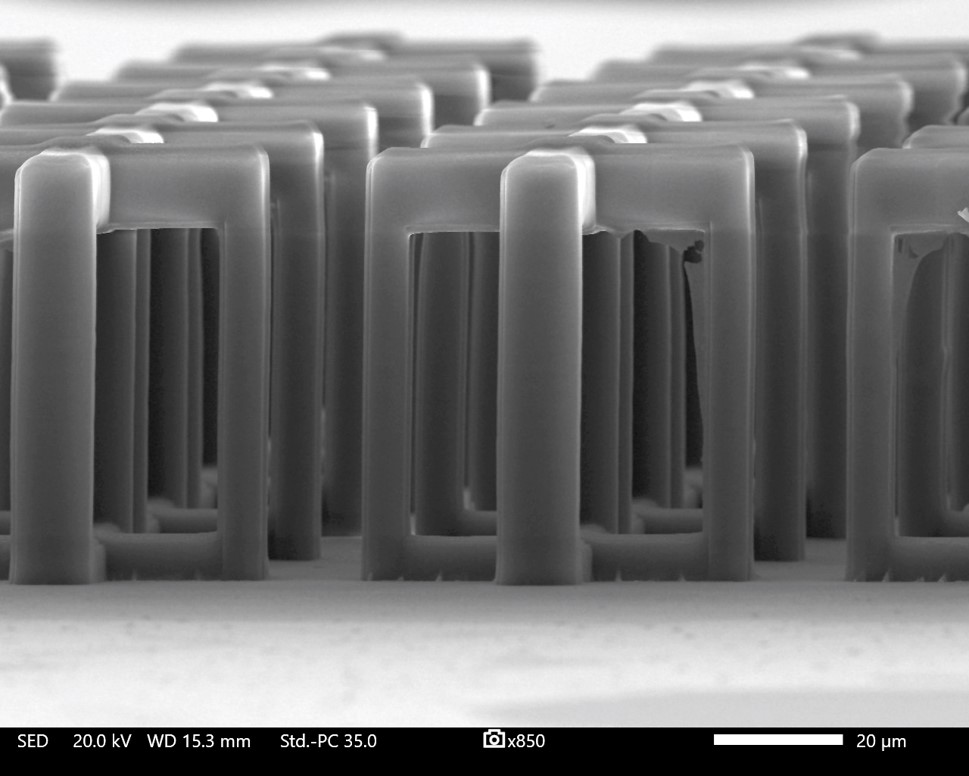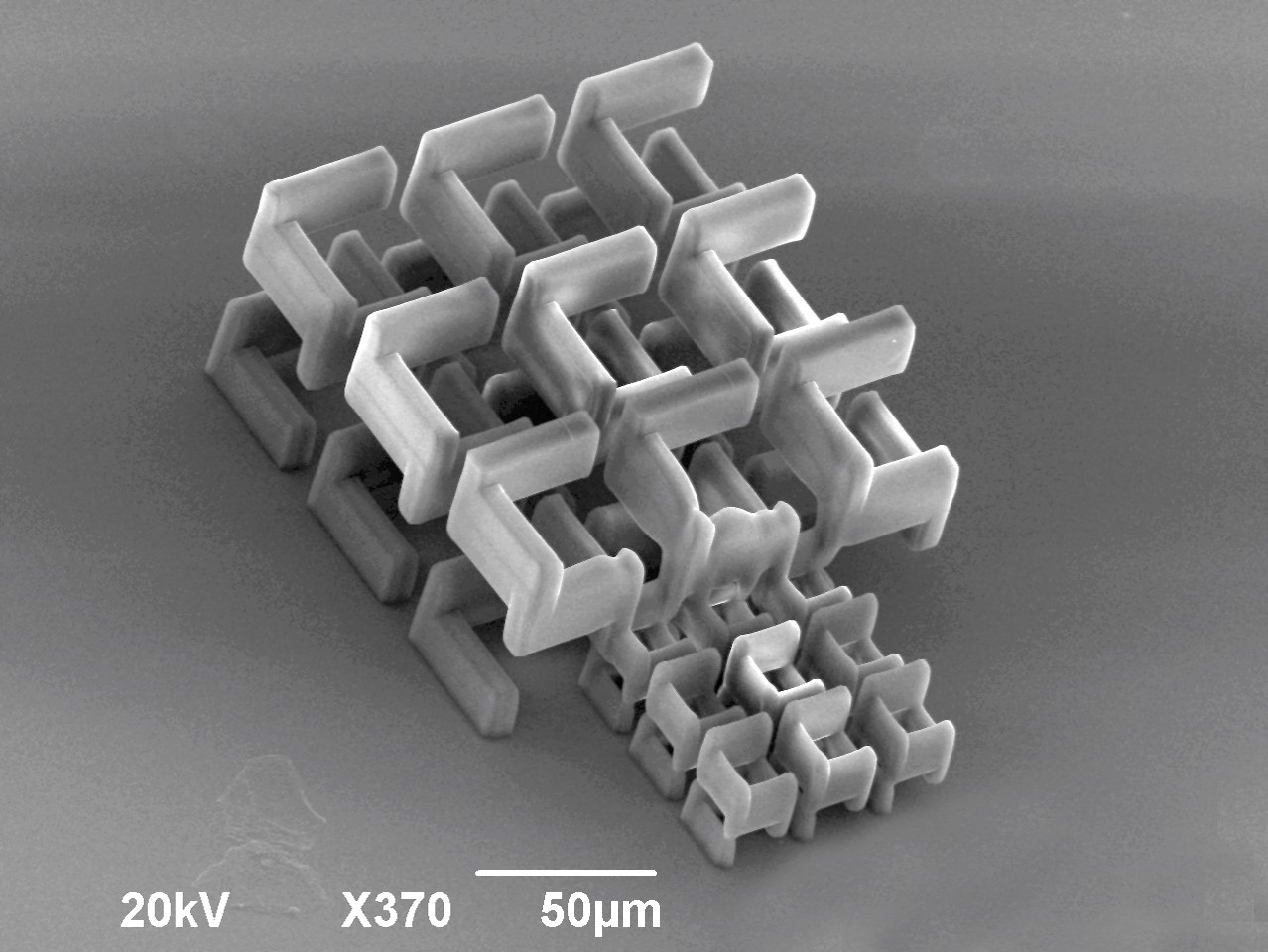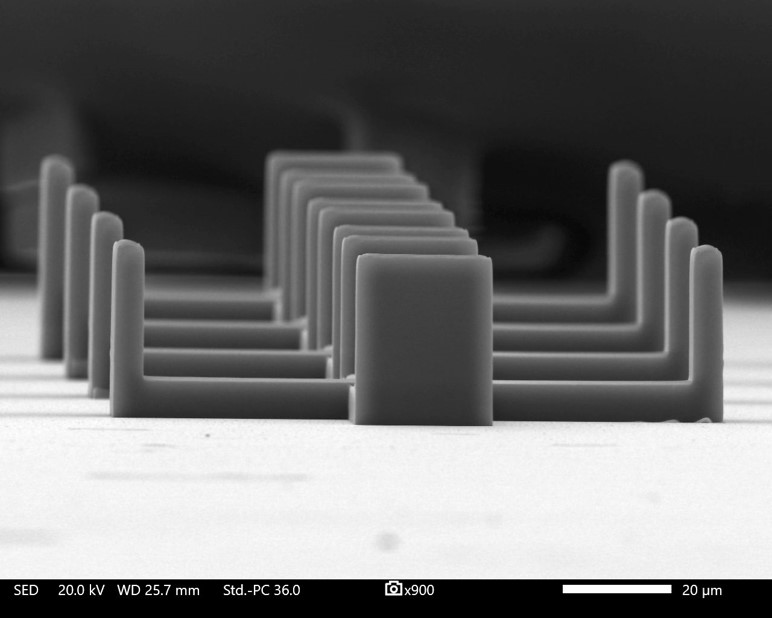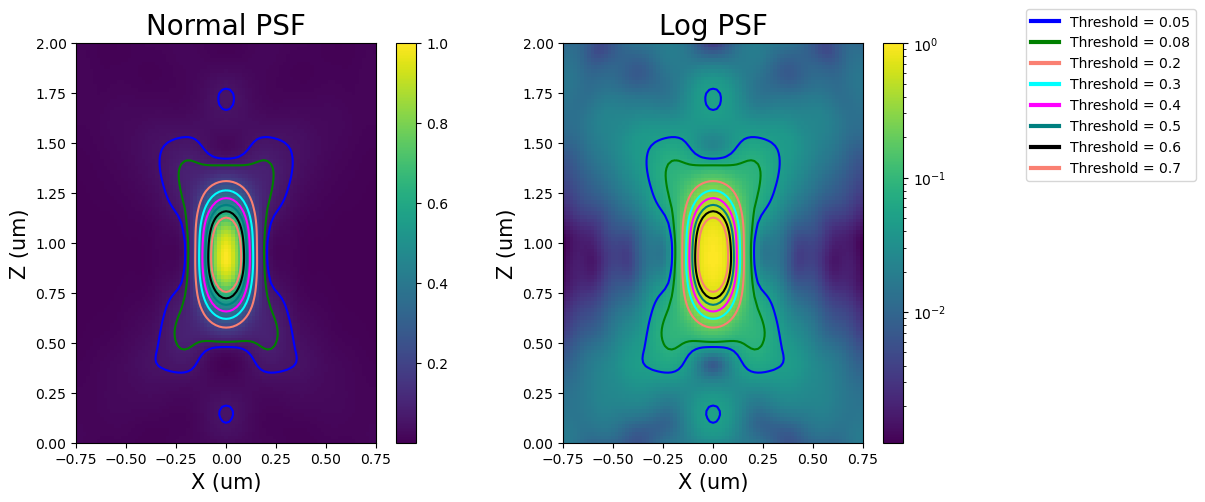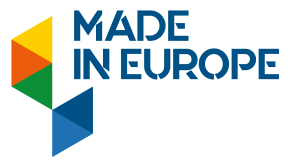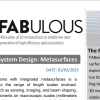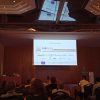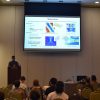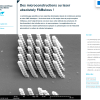FABulous is investigating two complimentary approaches for high resolution, high speed, multi-photon 3D printing of 3D metasurfaces. The aim to identify the optimum method for manufacturing metasurfaces with different applications. The first approach is based on massively parallelised lithographic printing which has been shown to enable writing of up to millions of voxels per exposure while reducing 3D proximity effects. The second approach uses a technique called holographic layer by layer 3D printing, which uses spatial temporal pulse shaping to further reduce or completely remove undesired out-of-plane polymerisation.
Example structures produced by the FABulous team using these techniques are shown below.

